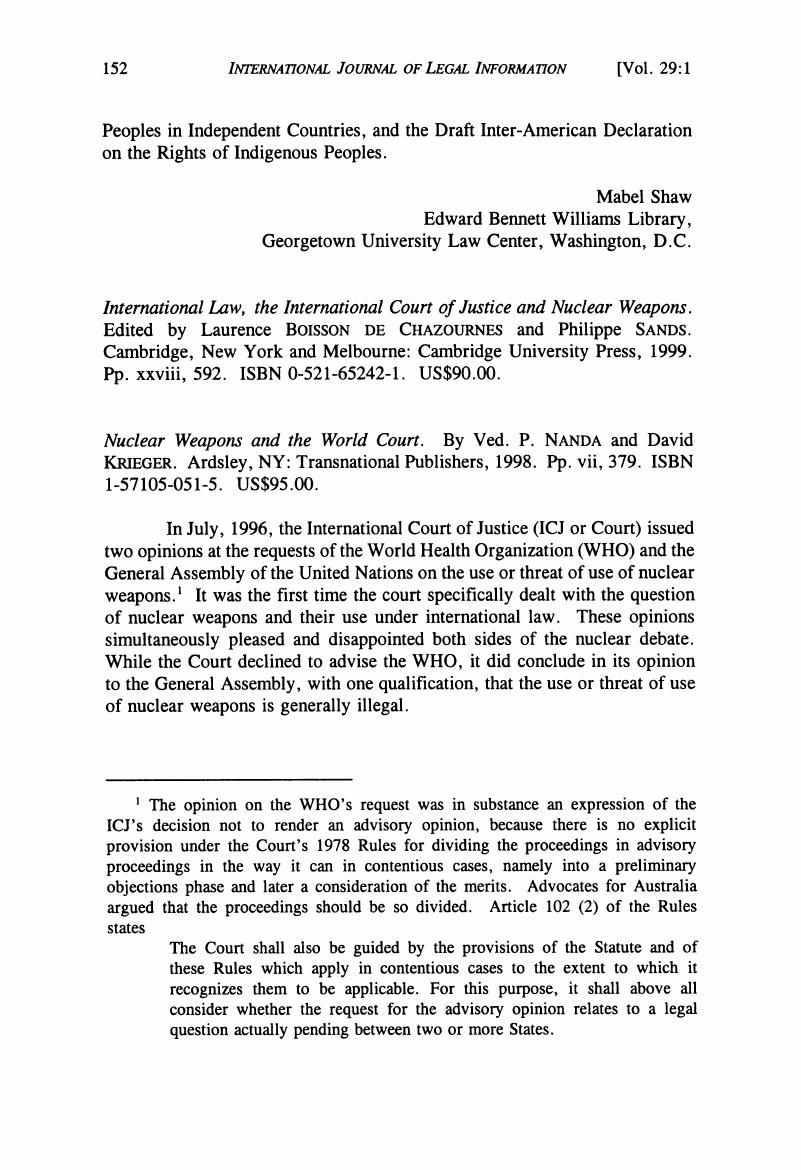No CrossRef data available.
Published online by Cambridge University Press: 28 February 2019

1 The opinion on the WHO's request was in substance an expression of the ICJ's decision not to render an advisory opinion, because there is no explicit provision under the Court's 1978 Rules for dividing the proceedings in advisory proceedings in the way it can in contentious cases, namely into a preliminary objections phase and later a consideration of the merits. Advocates for Australia argued that the proceedings should be so divided. Article 102 (2) of the Rules statesGoogle Scholar
The Court shall also be guided by the provisions of the Statute and of these Rules which apply in contentious cases to the extent to which it recognizes them to be applicable. For this purpose, it shall above all consider whether the request for the advisory opinion relates to a legal question actually pending between two or more States.Google Scholar
2 The vote for this conclusion was 7–7, decided by the casting vote of the President. I believe this may be only the second time the Court has used this provision of the Rules, and that its only previous use was in the South West Africa cases. This was necessitated because the Venezuelan Judge Andres Aguilar Mawdsley had recently died, so that the court was sitting with only 14 judges. Article 12 (4) of the Court's Statute provides that “[i]n the event of an equality of votes among the judges, the eldest judge shall have a casting vote.”Google Scholar
3 The contents of the appendixes are as follows: 1. ICJ opinion to the General Assembly; 2. ICJ Opinion to the World Health Organization; 3. Draft Model Nuclear Weapons Convention (UN Doc. No. A/C.1/52/7); 4. General Assembly Resolution 52/38 in response to the ICJ's advisory opinion to the Assembly; 5. Non-Proliferation Treaty; 6. Comprehensive Test Ban Treaty; 7. Final Statement of the Non-Proliferation Treaty Review and Extension Conference; 8. Canberra Commission Executive Summary; 9. Statement of the Mayor of Hiroshima at the ICJ; and 10. Statement of the Mayor of Nagasaki at the ICJ.Google Scholar